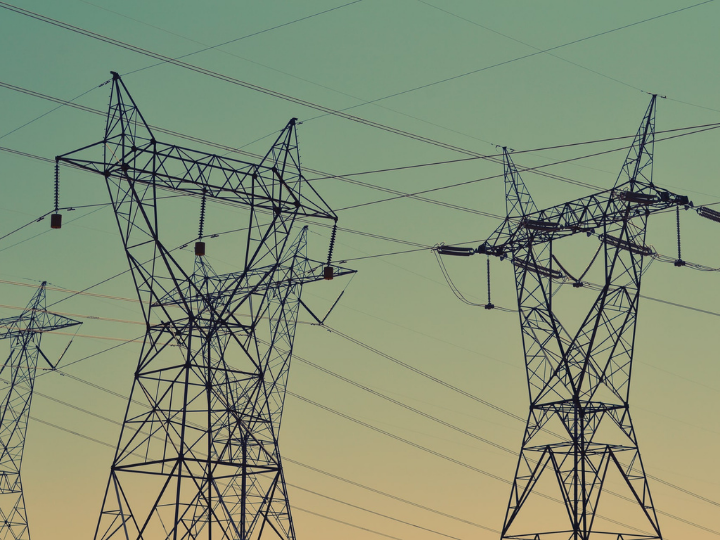by Frederic Simon
The EU’s integrated electricity market has helped mitigate energy prices, bringing benefits estimated at €34 billion per year, according to a report by the EU’s energy regulators, who outline 13 measures to alleviate the ongoing price crisis.
In a much-awaited report, the EU Agency for the Cooperation of Energy Regulators (ACER) delivered its conclusion on the role played by wholesale electricity markets in the ongoing energy price crisis, exacerbated by Russia’s war in Ukraine.
Published on Friday (29 April), the report is clear: “Whilst the current circumstances impacting the EU’s energy system are far from ‘normal’, ACER finds that the current electricity market design is not to blame for the current crisis”.
“On the contrary, the market rules in place have to some extent helped mitigate the current crisis, thus avoiding electricity curtailment or even blackouts in certain quarters,” the agency adds, estimating the benefits at €34 billion per year on average.
Gas prices surged to record highs in autumn as tight supplies collided with high demand in European economies recovering from the COVID-19 pandemic. This pushed up the cost of electricity, driven by “marginal” production capacity available from gas power plants that can be fired up at short notice to meet peak demand.
This marginal pricing system came under heavy criticism by France and Spain, which have little electricity production from gas and rely instead on low-carbon power generation from nuclear or renewables.
“A European energy market in which the price of decarbonised electricity remains dependent on the price of fossil fuels is absurd,” said French economy minister Bruno Le Maire, one of the staunchest proponents of reform.
Instead of the marginal pricing system, Le Maire proposed setting electricity prices according to “the average production cost of decarbonised energies” and firmly rejected using gas as a price-setter.
France was not alone in calling for reform. Last month, the leaders of Italy, Spain, Portugal and Greece piled pressure on the European Commission to address the “contagion effect” of high gas prices on the electricity market, with Madrid calling for “structural solutions” to decouple the two.
EU leaders debated the issue at a summit in March, which invited the Commission “to take any necessary initiatives by May 2022” after ACER submits a report on the issue.
EU electricity market ‘worth keeping’, with some improvements
The final ACER report will probably make disappointing reading for supporters of deep reform.
“ACER’s assessment is that the current market design is worth keeping,” the report says, warning against “interventionist measures” adopted in times of war that risk distorting normal wholesale market functioning during peacetime.
“As a rule of thumb, ACER considers that the more interventionist the approach, the higher the potential to distort the market,” the report adds, warning that government moves to lower energy prices “may dampen private sector investment” in innovative low-carbon technologies that are needed for the energy transition.
“As regards the current emergency situation in Europe, we as ACER are not convinced that capping electricity prices will solve near-term issues. Rather, it may risk exacerbating them,” warned ACER director Christian Zinglersen, referring to measures recently adopted in Spain and Portugal.
Looking forward, functioning electricity markets will be an essential “‘work horse’ of the EU’s clean energy transition,” Zinglersen wrote in an opinion piece for EURACTIV, noting more sectors of the economy are turning to electricity to reduce emissions.
The ACER report also recognises that some improvements are needed to ensure the electricity market delivers on the EU’s decarbonisation objectives. It lists 13 measures governments can take to make the market less volatile and future-proof.
First among those are efforts to speed up electricity market integration and develop renewable energies via support schemes and corporate power purchase agreements. Another key objective is to provide greater flexibility in the electricity system as more intermittent renewable energies like wind and solar are added to the electricity mix.
Since electricity cannot be stored at scale, “there needs to be price incentives for longer-term flexibility providers,” such as digital technologies that remunerate industrial consumers for temporarily going off the grid.
All these objectives will be facilitated with tighter integration of electricity markets and interconnections between countries.
“Member states need to deliver what we in the EU have already agreed,” Zinglersen says, pointing to “significant delays” in making spare capacity on interconnections available for trade as well as delays in implementing market coupling rules “that were decided years ago”.
“Transmission lines are also notoriously slow to be built in many parts of the EU, impeding enhanced power trade,” Zinglersen said.
*first published in: www.euractiv.com




 By: N. Peter Kramer
By: N. Peter Kramer
